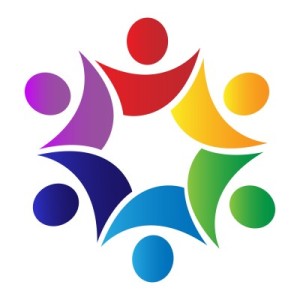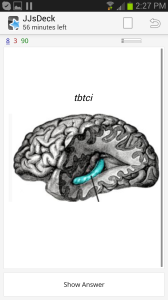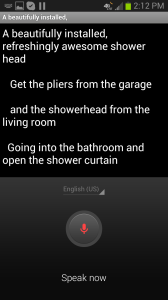



Over time though, I was able to transform this attention-sucking, energy draining monster into an untiring, ever-attentive coach and assistant that’s helped me prevent crashes and nip my Chronic Fatigue Syndrome (ME/CFS) symptoms in the bud on a daily basis. Today, two years after I got my first smart phone, it has become a key ally in maintaining my near pre-ME/CFS functionality and above pre-ME/CFS happiness.
- For Johannes story, click here.
I hope this article will give you an idea of what’s possible if someone chooses to use a smartphone as a way to reduce distractions, minimize stress, and improve their well-being and health. This article also aims at providing you with a step by step guide on how to apply the outlined techniques in your life.
Two Things Before We Get Started
Cost–If your budget is tight, the good news is that getting a smartphone may cost much less than you might you think. A one-time investment of about $70 will allow you to get a phone with which you can do most of the techniques described in this blog. I’ve included a short shopping guide for you near the end of this article.
Please note that some of the techniques in this blog can be done without a smartphone. I’ve included them anyway, because using the smartphone made them easier and more convenient.
Now, let’s take a look at how I’ve used the smartphone to improve my health and well-being, and how you might, too.
Using Your Smartphone to Improve Your Health and Well-being
Over time I’ve able to transform this attention-sucking, energy draining monster into an untiring, ever-attentive coach and assistant that’s helped me prevent crashes and nip my symptoms in the bud
Calming Your Mind: Making Your Rest Breaks Really Count
If you have ME/CFS or Fibromyalgia, you’re probably familiar with the following scenario:
You sit or lie down to rest—but your mind keeps running a million miles an hour, thinking about what you did before the rest, what you want to do after, or giving the person you spoke with yesterday the piece of your mind that was really meant for them.
If you think this racing mind isn’t a huge energy drain, think again. It’s likely making your heart pound, causing stress chemicals to be produced, and putting you in the ‘fight or flight’ response that studies indicate is often present in ME/CFS. Until your mind settles down it’ll be difficult to get your body to enter into the ‘rest and digest’ mode it needs to rejuvenate and heal itself.
The core of the issue is how to make your racing mind calm down, and—believe it or not—my smartphone has helped me with this.
Here is how: I click a button on my phone to open my notepad app and then write down the thoughts that occupy my mind. Something magical happens when I write down my thoughts and concerns. Once I see the thoughts “on paper,” my mind, no longer stressed at having to hold onto them, relaxes.
Writing down my thoughts not only helps me calm my mind, it also serves as a welcoming transition from doing to not doing, which makes taking breaks feel less difficult.
Let Your Smartphone Guide You into a Place of Total Relaxation
Joining a meditation group is one of the most fulfilling things I’ve done during my recovery journey. Soon after joining a group, however, I noticed that traditional forms of meditation just didn’t work for my ME/CFS brain. My version of ME/CFS comes with ADD-like symptoms that make the prolonged periods of focus required for meditation very difficult.
The solution to my meditation disability?
My smartphone (of course J): Listening to a guided meditation, such as my free Melt away tension and experience peace audio, helps me overcome my lack of focus by frequently reminding me to return my focus to the object of my meditation.
During the three to five meditation periods I engage in throughout my day, I let my smartphone guide me into a state of deep peace and contentment.
All Day Stress Busters
I have such an easily stimulated mind that when I walk in the park or putter around my house, my mind doesn’t just become calm and relaxed like it would for most people. Instead, stimulated from the movement and sensual impressions around me, it produces an exhausting whirlwind of thoughts.
This, along with the general sensitivity to stress that I’ve developed since ME/CFS, is the reason that simple activities, such as refilling my pills or preparing dinner, can leave me stressed out and exhausted.
Regardless of whether we have an overly active mind, are sensitive to stress, or both (like me), the solution to the problem is the same. We can prevent our mind from going into stress mode by keeping it engaged in a focused activity such as listening to an audio book or studying flashcards.
I like to study flashcards with the AnkiDroid app (or AnkiMobile for IPhone) during my morning walk and I listen to books on tape with the Smart Audio Book player when I refill my pills or clean up the kitchen.
Cut Overwhelm: Mini-Task It on Your Smartphone.
If something I want to do consists of more than one step, it threatens to overwhelm me, regardless of whether it’s taking a shower, preparing for a call with a client, or making dinner.
My trick for reducing overwhelm is to cut a big task into manageable smaller tasks (or in my case in manageable mini-tasks). As I arise from a rest and think about what activity to engage in next, I pull out my smartphone and journal about the many manageable mini steps that I can divide the task ahead of me into.
For example, let’s say I want to install a new shower head in my shower, which I’ll do immediately after writing this section of this article. I write down—or speak using the smartphone’s astonishingly well-functioning voice recognition feature—the following:
A beautifully-installed, refreshingly awesome showerhead
Get the pliers from the garage
And the shower head from the living room
Go in the bathroom and open the shower curtain
Place the pliers and shower head near where I stand to fix the showerhead
Remove the old shower head
Put on the new one
Enjoy the new shower!
Just as I wrote this down, my feeling of overwhelm dissipated and a big smile spread itself across my face. Each of the little steps feels easy, the big task now feels manageable.
This is all about getting over the overwhelm that tasks present to your ADD challenged, working-memory-obliterated brain. Studies show that the cognitive processes hit hardest in chronic fatigue syndrome are those used to organize, plan and carry out tasks (executive functioning). We all need some help in this area and breaking down tasks, putting your thoughts on ‘paper’, etc. are two ways to give your brain a break.
My smartphone lends itself for journaling for more than one reason. First, I always have it with me. Second, I can speak my text in it using the voice recognition system, which is much less energy-intensive than typing them in. Third, if I use an app called Evernote, it will sync my entry to my computer, which is nice if the task that I need to complete is computer-based.
Give Your Brain a Break – Let Your Smartphone Do Your Scheduling
Since I am so easily overwhelmed, stressed-out, and exhausted, I try to spare my brain any work that is not absolutely needed. One of the tasks I like to outsource from my brain into my smartphone is remembering what to do when.
I need to remember to ask Erin over dinner if I can use her car next Wednesday? I simply type the task in my Remember the Milk app, so that it reminds me with a beep and a message at 7pm tonight.
I need to remember to think of something nice for her every three weeks? I simply put “think of something nice to make Erin happy (‘A happy wife is a happy life!’)” in Remember the Milk as a recurring reminder.
I need to remember to buy Milk at the store? I’d be surprised if Remember the Milk couldn’t do this one as well!
A sense of relaxation and peace has been essential for my wellbeing and happiness since ME/CFS, and Remember the Milk together with my other awesome smartphone applications has helped me tremendously with achieving it.
The Self Care Hour—Tap Into The Power of Community
Do you ever feel like you are the only person who needs to rest all the time while everyone else is having fun being active?
For me and many of my clients, the most powerful antidote to feeling this way is having a community of fellow resting buddies. Just like in a yoga class, doing relaxing self-care activities together with others makes them more enjoyable and effective.
So how do you do it?

The Online Self Care Hour community can make your self care activities more effective and enjoyable by leveraging the power of the herd instinct and accountability.
I do it using the (still) free Online Self Care Hour Community. I pull out my smartphone, open the app we use for our Online Self Care Hour meeting room, and am immediately immersed in an atmosphere of renewal and relaxation.
In our Online Self Care Hour meeting room, Jane might have just written that she engaged in some gentle stretching and Paul that he is about to enjoy the Melt away tension and experience peace guided meditation. The energy of renewal and positivity is palpable.
Even if prior to joining the room I don’t feel particularly motivated to refill my pills, meditate, or work on transforming my stressful beliefs, this soon changes once I’m there. We’re all doing it together, so I am motivated by the reciprocal accountability and community.
By the way, you can also join the Online Self Care Hour through your computer if you don’t have a smartphone. I urge you to check it out, as it has totally transformed my life.
Get in a Positive Mental State Through Your Personal Selection of Pump-It-Up Music.
I used to have a hard time functioning in the mornings. One of the ways that I learned to turn a grumpy Johannes into a happy one and a trudge into a spring in my step is to listen to the right music first-thing in the morning.
I often listen to music on my smartphone using the “YouTube” app which gives me free access to nearly all of the greatest music ever made.
What tunes will help you to enter a positive state of mind depends on what type of music you love and which songs evoke your positive emotions. In my case, even though I’m not a very religious person, certain sections from classical masterpieces, such as the Hallelujah from Haydn’s “Creation” and this section from Handel’s Messiah get me moving!
How to Get a Smartphone Without Breaking the Bank
What do you think; do you need a smartphone?
If your answer is yes, take a look with me at how you can get one without breaking the bank:
For less than $60, Get a Perfectly Adequate New Smartphone from Amazon.com.
When I discovered through my research how cheap the LG Optimus Logic, a smartphone Amazon.com reviews suggested was perfect for applying these techniques to ME/CFS and fibromyalgia, I thought: “This is too good to be true!”
So I purchased the phone and thoroughly tested it this last week.
The result: The phone holds up to its promise! I discovered that it is indeed ideal for our purposes- and highly recommend it. Click the following link if you’d like to read my detailed review of the LG Optimus Logic for people with ME/CFS or Fibromyalgia on Amazon.com.
Get Started Improving Your Health and Life
Now, if you’re ready, take these four simple steps to get started with using a smartphone to improve your life with ME/CFS or Fibromyalgia:
1) Get the necessary equipment for implementing the techniques from this article by buying the LG Optimus Logic for $50, this $2 or $5 headset and this $4 headset clip. (Health Rising receives from 4-8% of the products price if you purchase it from this page).
2) Keep in mind that once the phone arrives, you will not need to activate the $50/month prepaid plan they send you with it. You can if you want, but if you are on a budget, I recommend that you eliminate the high monthly cost by only using the phone’s internet on your home Wi-Fi or places with public internet, such as Starbucks or your public library.
3) Get started with using your phone to improve your situation. Just choose one of the many self-help techniques from this article to start with, install the required app for it like so, and enjoy a better life 🙂
The Smartphones For Chronic Fatigue Syndrome and Fibromyalgia Series
I’ll have lots more information on using your smartphone to improve your health and life in the second and third parts of this series when I tackle how to use your smartphone to:
- Improve sleep
- Exercise within your safe limits
- More quickly find the life-style that’s best for you
- Free yourself from isolation
Possibly the most important, I’ll also detail how you can prevent your smartphone from leeching your energy and time (and why, to achieve this it’s important that you use an Android smartphone, not an iPhone.)
Sign-up for the free CFSRecoveryProject newsletter to ensure that you will not miss the second installment of this series of blogs.
Your Turn….
Have you discovered ways in which your smartphone makes your life with ME/CFS easier or better?
Any questions?
Please share your insights and questions in the comments section below.

To benefit from more of his work, sign up for his free CFS Recovery Tips Newsletter or join over 130 participants in his free ME/CFS Health and Happiness Fundamentals email course.
</center?















I use my phone as my brain, i have apps,and alarms set for everthing. Could not even remember to take my pills or leave for work on time
Your ‘alternate brain’…I like that :). I look forward to getting a cheap smartphone – I didn’t even know that was possible before I read Johannes blog – and using it to calm down and relieve my own rather overloaded brain 🙂
This idea of using a smartphone is quite intriguing. I have a whole list of daily questions, comments and activities that come up at the appropriate time on my computer using the free cozi.com program. But I would have to be on the computer to see them in a timely fashion.
A phone would be much more portable and often more timely. I follow Bruce Campbell’s CFIDSSelf help course and would find the phone a good reminder for my personal targets that repeat daily.
I’m looking forward to reading the next articles.
Suella
I’m sorry to hear that you are still needing to take pills Johannes and are easily overwhelmed, stressed out and exhausted. Have you found any medications to help with your CFS?
Even people who proclaim themselves completely healed and recovered seem to often have areas of weakness that never quite resolved. I’m just happy to take whatever improvment I can create, and take more care with my other areas of weakness.
I’m very glad that Ashok’s Amygdala Retraining has been helpful for you. I too find his protocol useful.
I have never used a smartphone. I never wanted a smartphone…Now I want one…:)
Organizing myself and my time is very important and scheduling in those ‘renewal breaks’ is key….The little things can really help..
I want one too. I have missed six doctor’s appointments in the past two years, in spite of how careful I am. BUT the phone that is found through this link is $140, not $70!! Disappointed!
Wow, bummer they are no longer selling the phone for $60. Thank you for making me aware of it.
After some research I found practically the same phone (same model, different color) for $50!
I’ve also updated the link in the article, so that it directly points to the phone at the low price.
Smartphone apps can be very helpful. I use them for meditation and for tracking meds and fluid intake. But the title of this article is a bit misleading/overstated. Smartphones will not overcome CFS. They are helpful tools in managing CFS but they unfortunately do not come close to overcoming it.
I have a bit different opinion; the title says can a smartphone HELP you overcome CFS. I would say yes in the same way that anything that helps you with CFS could help, in combination with other things, overcome.
I think of the smartphone apps as enabling mental and physical pacing’ and helping to put your body in a mode that can help it heal. Studies have shown that pacing is incredibly important in reducing symptoms and Staci Steven recent case study suggested that rigorous pacing in combination with heart rate monitor regulated exercise can actually improve your physiology. I do know that if my mind is whirling a million miles an hour , it just chews up my energy….
A couple of years ago, Dr. Friedberg suggested that doing things like this will enhance any other treatments you’re doing so I really do think of techniques like this as more than management tools; I actually think of them as health aids – not the ultimate health aids but simply one more tool many people can use to feel better and be healthier.
I want to second Anne’s thoughts. I think my smartphone is helpful, especially with remembering appointments and listening to meditations. I think the article contains some very useful tips. But “overcome Chronic Fatigue Syndrome” really seems overstated. Is Johannes really overcoming CFS or is he using a tool that allows him to be happier and more productive while still dealing with CFS? I realize this may seem just be a matter of semantics but the headline implies that we can all “overcome” our illness if we just use the right tools and get into the right frame of mind when the article itself simply states that a smartphone can help “improve your situation.”
I think your point regarding the semantics is valid, Lisa. I can see how the headline could easily be read as implying “cure.” The reason I chose it is that, first, it sounds exciting :), and second, my phone really helped me overcome ME/CFS. Without it, I don’t think I’d be able to work full time and function nearly as good as I do now. That said, I was pretty close to overcoming ME/CFS before and the smartphone only played an integral part to getting me from 60-70% to 85-95%.
Also, the heading is a question, so it’s actually not stating anything but just asking to spark curiosity. Still, I see how it could be read as implying something that’s just not true: “A smartphone can cure your ME/CFS”
Do you consider yourself to be at 85-95%? Have you overcome your CFS even though you need medications– and I presume are not elderly– and feel like your working memory is obliterated? I think your suggestions are great but I think your advice will likely be much better received if you frame it as advice for helping people deal with CFS.
Maybe a better way to phrase it is that I have overcome my disabilities and the negative impact of ME/CFS on my life. I’d still be very dysfunctional and unhappy without the meds, smartphone techniques, lifestyle changes, diet, and mind/body techniques I’m using.
Using the analogy of an amputated leg, I’ve found an awesome prosthesis that allows me to walk, work, drive, love, and dance beautifully again, but I have not grown back my leg. Even though my ME/CFS is not fully healed, I have definitely healed physically somewhat in the last four years as well.
Also, thank you for sharing your feedback, Anne.
I just want more NK cells. Lots more NK cells. Can I get those with a smart phone? Say, if I sign up for 4G? And can those cell signals re-align the dna and rna in all my uninvited and unwelcome guest viruses to make them benign? Say, if I buy a really cool, really expensive I-phone?
You’d have to buy the Samsung NK DNA 2054 for that one 😉
On a more serious note, today’s available phones, of course, will only have the exact effect you described to make your point. However, by helping you reduce emotional and physical stress through supporting your pacing and rests the phone could possibly counteract the sympathetic nervous system hyper-arousal present in many of us, which could in turn strengthen your immune system, which then would take care of the viruses. While I doubt it will act exactly as I’ve just hypothesized, my point is that the smartphone’s reducing our emotional and physical stress might indeed have a positive impact on our health.
Check out this study Suzanne Vernon, PhD., shared with me about the presence of sympathetic hyper-arousal in ME/CFS:
http://www.plosone.org/article/info%3Adoi%2F10.1371%2Fjournal.pone.0049518
And have a look at the disease model “slide” developed by Suzanne Vernon, PhD., and Nancy Klimas, PhD., from Dr. Bateman’s presentation below for the role of physical and emotional stress in ME/CFS:
http://www.youtube.com/watch?v=fuefBMy1lA4&feature=youtu.be&t=1h5m21s
Biofizika. 1992 Sep-Oct;37(5):957-62.
[The effect of electromagnetic radiation with extremely high frequency and low intensity on cytotoxic activity of human natural killer cells].
[Article in Russian]
Fedorchuk AG, Skivka LM, Stoliarov ZE, Levchuk IuN, Mostovaia AV.
Abstract
EHF electromagnetic radiation under short-time action suppresses the cytotoxical activity of the natural killer cells from granulocyte fraction and peripheral blood of healthy volunteers; the observed effect is non-linear. Under the long-time irradiation of the natural killer cells from the mononuclear fraction of blood, the suppressing effect gets a practically linear character after the 20-30 minutes action. Under the long-time irradiation of peripheral blood the insignificant stimulation of natural killers was observed. It is assumed that the radiation applied can suppress the cytotoxic activity of the natural killers, breaking the normal metabolic pathway of phosphatidylinositphosphate.
PMID: 1335293 [PubMed – indexed for MEDLINE]
http://www.ncbi.nlm.nih.gov/pubmed/1335293
Dear Paul,
The studies you posted here say nothing about health effects of EMF’s in ME/CFS, let alone any humans.
I’ve moved the other studies you posted here to this thread, so that they can still be read, but, don’t distract from the main topic of this article:
https://docs.google.com/document/d/1DaJpKTCrTSZw_7r3kOTcg3iBrd_PdC2h0R3xUOhu-t0/edit?usp=sharing
For a balanced review of the risk of cell phones, I invite you to check out:
http://en.m.wikipedia.org/wiki/Mobile_phone_radiation_and_health
If you are still concerned, I want to share some advice from the Mayo Clinic:
http://www.mayoclinic.org/cell-phones-and-cancer/expert-answers/faq-20057798
The studies that you moved clearly show that exposures to EMFs cause Natural Killer Cells to be depleted in the body. Low Natural Killer Cell counts are a major biological marker of CFS. How can this distract from the conversation? How can you discount this information if you are not engaging in Willful Ignorance?
For a real balanced view, check out the BioInitiative written by numerous respected doctors, scientists, and public health officials from around the world:
http://www.bioinitiative.org
Of all the immune cells NK cells are amongst the most susceptible to stress – http://www.ncbi.nlm.nih.gov/pubmed/9251165 – I don’t know if being able to relax more (if that’s an issue for you) could help you increase your NK cells counts – but it could help take the load off..
Chronic sympathetic nervous system activation, by the way, produces a Th2 dominant state in our immune system. That state is associated with increased humoral responses and risk of autoimmunity and reduced protection against the intracellular viruses you’re trying to fight off.
The techniques Johannes is suggesting tend to reduce sympathetic nervous system activation and increase parasympathetic nervous activation – which could help move your system to a more Th1-like state. .
I have a cell phone that I only use for texting; I’m about ready to drop it. I have a landline.
Do I understand correctly that I can buy this phone, not activate it with any plan, and it will pick up my Verizon Fios signal at home? And then instead of texting with my kids, I can pop into wifi hotspots for a connection and connect with them through FB or google chat?
And furthermore that it has good voice recognition, so I don’t have to type too much on a tiny pad?
Hi Madelaine,
Yes, you’re understanding correctly.
You could even continue texting with your children if you use the free Google Voice app.
I tested voice recognition on the LG Optimus Logic and it’s surprisingly good, actually very usable.
One thing to keep in mind is that this LG Optimus Logic doesn’t have a lot of system memory, which means that when you install all the apps mentioned in this article, you may have no system memory left to install the facebook app. You can read about this in my detailed amazon review of this device:
http://amzn.to/15525KU
Hope this helps 🙂
just a quick note to remind you that while you won’t need a phone plan, you will need to have a Wireless Router which will let you use your home internet service. (forgive me if I missed this in your article or in the comments … M.E. brain)!
I’ve been using my smart phone for years for my calendar & phone book which is synced to laptop, & tablet without needing a phone plan. Think of it as a small and very portable tablet!
great ideas regarding apps. Be sure to enter a reminder on your new phone to connect to charger. I often forget and then find when I want to take with me battery’s drained 🙁
cheers 🙂
reminder to folks that while you don’t need a phone plan, you will need a wireless router in your home. if you use a laptop without a physical cable to the modem you probably have one.
just begin to think of your phone as a mini tablet with some limitations in regard to computer memory.. works great. 🙂
ohhh … and don’t forget to charge it. lol. use one of the reminder apps to set alarm for yourself 😉
In my experience, your claim is wrong, Paul.
Also, I feel hurt by some of the wording of your comment.
While it’s true that some people with ME/CFS also suffer from Electromagnetic hypersensitivity, it’s certainly not “the” cause of ME/CFS.
If someone reading this article is finds that EMFs make them sick (even though it’s rare), I recommend turning on the smartphone’s airplane mode, which switches off the smartphone’s cellphone and Wi-Fi signals.
Paul, you wrote, “EMFs emitted by wireless devices are the cause — not the cure — of Chronic Fatigue Syndrome.”
I disagree and based on conversations with and reading of leading ME/CFS experts, such as Erica Verrillo, Susan Vernon, Nancy Klimas, I know that they, too, believe that EMFs are not the cause of Chronic Fatigue Syndrome or Fibromyalgia.
In my opinion this article is loose talk. It could occur the false impression that ME/CFS is a mental illness, which you could overcome with some tricks and a change of behaviour.
All over the world psychiatrists are still continuing to reclassify ME/CFS as a mental illness. Please, have a look at Per Fink, director of danish „Research Clinic for Functional Disorders and Psychosomatics“ (University Hospital Aarhus). Per Fink created a new diagnosis: „Bodily Distress Syndrome“(BDS). He proposed BDS for reclassifying ME/CFS, FM and other organic diseases in ICD-11 under the category of „mental and behavioural disorders“.
As long as we are fighting for acknowledgment that ME/CFS is a real existing disease articles like this from Johannes Starke nullifies our whole efforts.
Furthermore it`s a bromide that pacing and similar technics help to avoid relapses – with or without a smartphone!
I understand what you mean but here’s my take on this.
I believe ME/CFS is at least partly a cardiovascular disorder and the research is clear there are problems with autonomic nervous system functioning. Both of those findings actually call for these kinds of techniques. The fact that they work in some people validates the research findings that suggest they might.
Check out this review paper titled “Meditation: Should a cardiologist care?” – http://www.ncbi.nlm.nih.gov/pubmed/23890919
The abnormal autonomic tone, blood pressure regulation and inflammation are all present in ME/CFS all suggest that activities like these (and there are many, many different techniques) could be helpful. I know this is a slippery slope but my guess is that further studies that continue to clarify the cardiovascular problems in ME/CFS will continue to point to these and other therapies. Not that they are ‘the answer’ but that they might help calm the autonomic nervous system problems in ME/CFS.
Whether or not pacing is a bromide in ME/CFS (it’s original but I think it should be frequently mentioned), finding new and easier ways to pace, still one of the more difficult things for me to do, is a good thing I think.
I think there’s room for all of these approaches in ME/CFS (and Health Rising); the alternative approaches, the mind-body approaches, the pharmaceutical approaches, the hard science….
Thank you for your insightful comments Cort and Katharina.
I don’t think articles like this will make or break the efforts to classify ME / CFS as a real physical illness. Just think of multiple sclerosis: even though it’s widely acknowledged that reducing stress positively influences illness outcomes, it is clear that it is not an psychological illness.
The real problem with classifying ME / CFS is that no physical marker has been established to test for the condition. Another much bigger factor than self help articles is the trivializing name of the condition.
So I think the only thing an article like this does is show that reducing stress and lifestyle changes positively influence the lives of many people with ME / CFS. It does not insinuate that it’s a psychological illness.
While, of course, it would would be beneficial for establishing and me CFS as a physical illness, if lifestyle changes and reducing stress didn’t help with it, it’s just not the way it is. Given how little these techniques say about whether ME / CFS is a physical or psychological illness, and what a big difference they can make in improving people’s lives, I still believe promoting these techniques is a good thing.
I also want to respond to Katharina’s claim about the effectiveness of pacing. While I agree with Katharina that pacing doesn’t eliminate relapses for everyone with ME / CFS, I do think that it is very beneficial for many. A patient survey conducted by a large patient organization in the UK has found that participants named pacing as the most useful intervention for their ME / CFS.
All that said, I am registering that the word “overcome” in the title of this post is a problem for some (even though it’s “just” a question). I’ll think of a better title and will also think of your feedback when choosing future titles for my articles.
I think there is no doubt that meditation and techniques like this actually have positive effects on the cardiovascular system. That’s not the point I am quarreling with. (When I`m in remission – and that happened several times in 37 years with ME – I always practise Yoga and I really know what you are talking about, because immediately I can feel the positive influence!)
I just miss the really important hint that all these techniques only work for mildly oder moderately ill patients. Severely ill ME patients often are not able even to look at a display of a smartphone. As you will know they are far away from listening music, scheduling, making dinner, shopping and repairing showers or somewhat else.
This article offers life support for those who are in remission (or nearby). But it sounds a little bit too much as welfare promise. And in my eyes it`s very delicate to give mental support the appearance of a cure, because this never will become a cure for ME. (Maybe for depression – NOT for ME!)
Patients who are in remission often believe their remission is due to the fact that they took supplements or that they avoided carbs or did some special mental training. I´m sure you can SUPPORT remission with all these measures, but I think remission comes spontaneously and up to the present we don`t know why and when it will happen. And often enough we even don’t know why we relapse!
It is very comforting for us to believe we could influence the point in time of remission, but unfortunately we cannot. Understandably we all like to pull the strings, because sometimes it is hard to bear that we are victims of a an unpredictable disease.
So it seems – in some way – irresponsibly for me to confirm the sick in their beliefs it is up to them to recover – even if it should happen with mere help from their smartphone and even if this support has no worsening effects like GET. We all know about the disastrous consequences of PACE trial – especially in Europe – and we are struggling day by day with the firm convictions of physicians who think it is up to us to recover – with CBT and/or GET.
So I think if someone likes to offer support for mildly or moderately ill patients or for patients in remission, he should not forget to mention that there are lots of people suffering from severe ME, who are not able to follow his advice.
And – in my opinion – he should not forget to mention that his advice does`nt replace an effective medicine. He should mention that there is no cure up to the present and that we are still waiting for effective medicine like Rituximab or something else.
Such a note would reveal advice and life support in a different light- a more reliable one!
Yes, some people with ME / CFS might be too ill to use some (or all) of these techniques in this article.
Yet, even the most severely ill patient I’ve coached so far (someone who was bed-bound at the time and constantly felt like she was “crashing”), benefited from listening to a guided meditation on her smartphone. She’s no longer bed-bound now, and completely sure that her remission was not spontaneous, as Katharina likes to suggest, but due to the mind/body and other techniques we tried. While I believe that not all patients benefit from these techniques, I disagree with you that all remissions are outside of our influence.
And yes, it’s unquestionable that some people with ME / CFS are so sick that there is almost nothing that can ease their suffering. A friend of mine shared with me the other day that the only thing that helped her when she was severely ill was her daughter holding her feet.
It’s so easy to forget the most severely sick patients, so I appreciate that you create awareness of them in your comment. I also hope that this blog, Health Rising will continue to cover the severely ill patients in some of its articles.
With regards to drugs such as Rituximab, it would be indeed really nice to have more drugs that work for at least some subsets of ME / CFS. What I’m concerned about, however, is that until such a drug will be available, it might be at another least ten, more likely another fifty years. In the meantime, let’s use what we have available today to improve our health, wellness, and functionality.
The Gupta Amygdala Retraining Programme works by continually calming the mind throughout the day, in various ways. I have the program, but don’t use it like I should. (It’s recommended to do the program each day for no less than six months.) I did learn the “map” script and say it to myself throughout the day, especially during relapses or times when symptoms worsen. Apparently, many clients (or patients, if you prefer) who really work Gupta’s program are “recovering,” and going on to become “retrainers” themselves. I’m hoping for a day when there will be a significant clinical trial published in a peer-reviewed journal about the observed, documented effects of Gupta’s program. It costs a bit more than the smartphone talked about in the article, but you get a LOT with it. Anyway, I’m not here to try and sell you on that program, since I’m not using like I should anyway. Rather, it’s to point out that whether you use pacing, meditation, smartphone apps, or other various techniques to distract your mind from dwelling on your illness and to calm your mind, they will likely help lessen symptoms over time. 🙂
Thanks for presenting some help Johannes. I’m a bit slow getting my reading done. Can’t keep up with Cort’s pace! 🙂 Touch phones/pads for me are difficult to use because they often require holding my hand in the air without support and aiming accurately with my finger. Often I mistouch, or a ‘drooping other finger’ triggers an unwanted screen action. Sometimes I lean my hand on the edge of the phone or tablet/pad for support and it helps, BUT the capacitive touch nature of the touch screens is sometimes messed up by this. I was lucky and found a resistive touch screen phone that uses a hard point stylus (like a small pen). Its less sensitive to accidental touches and I can rest my palm on the screen edge as I tap/type. But I can’t find a manufacturer who seems willing to make one now. Really pathetic diversity in my opinion. If anyone knows of a manufacturer of recent android system phones, with a resistive stylus touch screen please let it be known. Samsung Note series have capacitive touch and a type of hard stylus screen feature BUT they are extortionist prices. Stay with it everyone!
Thank you for sharing your insights, Packer. If you find anything that meets your accessibility needs, please keep us posted!
I hope that soon there will be voice recognition software for android systems much like “Dragon Naturally Speaking” for PC. Dragon allows one to use the computer handsfree. It works amazingly well.
For another speech-to-text app, try Vlingo. I think it’s made by the same people that make Dragon Naturally Speaking. Unfortunately, I assume because new iPhones now includes Siri, it’s no longer available for the iPhone. I used it for a time when it was available on the iPhone, and while not perfect, it’s better than nothing. There are many speech-to-text apps, but not many that work as well as Dragon’s.